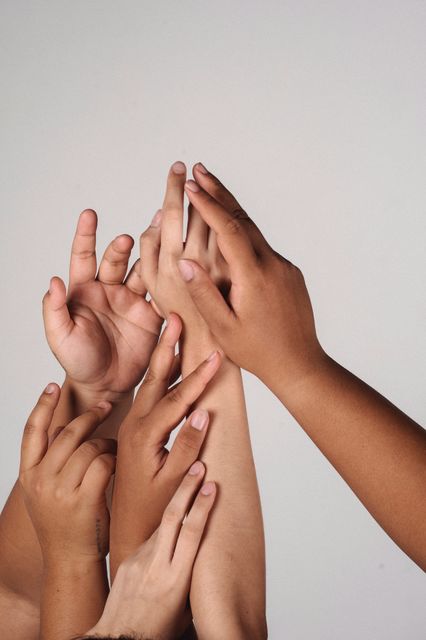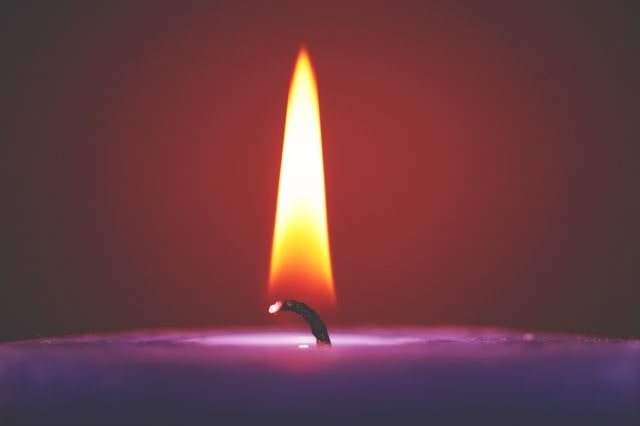
If hope is bringing a vision of the future to bear on the present, it is important to consider the makeup of that vision. What do you believe about the future? How will it unfold? What will it look like? Not just for you, but for those around you. For your community…your city…your state…your nation…your world. We may not spend a whole lot of time thinking intentionally about all of this. Even now, as you consider these questions, it may be hard to state clearly your vision of the future.
As people of faith, we are not left to cultivate this vision alone. We are not left to the narratives of the society and culture in which we live to envision what we want for the world.
The biblical story is filled with images that share God’s vision, God’s yearning and desire for the world that God has created. These images are both inspiring and challenging. Inspiring because they take us beyond ideas like optimism to something we have never considered or imagined. Challenging because the breadth of God’s hope invites us to make changes to our living that align our lives with God’s yearning and desire. And change is not always easy.
The images of the biblical story seem to gather around the word, “new.”
“New” is a word that comes from a root with a variety of meanings: unheard of, untried, unused. It suggests something that has not been experienced. All of these meanings take us beyond “new” as simply the opposite of “old.”

In chapters 1-39, the prophet Isaiah has been relentless with his ominous and threatening words. If things do not change, he says to the people of Israel, there will be an end to your identity and your way of ordering your lives. Your choices are based on what you want to do, what you feel you have a right to do. You do not have regard for justice and caring. You do not have regard for the meaning and promise that comes from living in relationship with God. For all of these reasons, you will violently lose your way of life.
Then, suddenly in chapter 40, Isaiah’s tone changes. There are words about offering comfort and speaking tenderly. There are words about how the people have served their term and paid their penalty. And it goes on this way for the rest of the book. Images of relentless threat are replaced with images of relentless hope. And many of these images coalesce around the word “new.”
See, the former things have come to pass, and new things I declare; before they spring forth, I tell you of them…Do not remember the former things or consider the things of old. I am about to do a new thing; now it springs forth; not you not perceive it?
Isaiah 43: 9, 18-19
When life does not unfold the way we want, when our optimism fails us, we have a choice to make. We can go into autopilot, going through the motions of life and doing the best we can. We can fall into despair and let that despair shape the way we see and live in the world. We can become angry and look for someone to blame…or blame ourselves. All of these are ways of dealing with life that we see in the world around us.

But Isaiah offers a different invitation. He offers the possibility that there are amazingly new ways of living springing forth. Ways that are not just a continuation of the past, but ways that are full of promise and possibilities that we can’t even imagine. But these ways do not come from our own plans or ingenuity. To discern them and give expression to them you have to stop and see; you have to pause and perceive.
Advent is a time to accept the invitation to stop and see…to pause and perceive. But openness to this newness is something we can do every day. At any given moment, we can ask: Is what I am doing right now just a task or an item on a to-do list? How can it be an expression of the newness that is happening in the world?
For I am about to create new heaven and a new earth; the former things shall not be remembered or come to mind. But be glad and rejoice forever in what I am creating; for I am about to create Jerusalem as a joy, and its people as a delight.
Isaiah 65: 17-18
Notice that God doesn’t tell us to go out and create a new heaven and a new earth. This is something that God is doing, and we are invited to participate.
Hope is a persistent belief and trust that God is at work for the good of all of God’s children, no matter how things may appear at the moment. And our role in this promise for good is to accept the invitation to join God in the project of creating a new heaven and new earth.
For even with an image of new heaven and earth, this is not some pie-in-the-sky hope. We strive to give expression to the way God wants the world to be. That world may be the one inside of us, as we confess the ways we have fallen short of God’s hope and open ourselves again to its possibilities. But it is also the world out there. Our community and beyond to the whole world. We dream, and we give ourselves to making justice and peace for all creation.
The days are surely coming, says the Lord, when I will make a new covenant with the house of Israel and the house of Judah. It will not be like the covenant that I made with their ancestors when I took them by the hand to bring them out of the land of Egypt—a covenant that they broke, though I was their husband, says the Lord. But this is the covenant I will make with the house of Israel after those days says the Lord: I will put my law within them, and I will write it on their hearts; and I will be their God, and they shall be my people.
Jeremiah 31: 31-33
“The days are surely coming.” Here is the promise of God’s relentless hope. It does not say that someday, maybe, it will come. No, they are coming. How will we respond to the coming of these days?
And the promise of these days is a new covenant that is written on our hearts. We think of the heart as the center of feeling and emotion. For the biblical people, the heart was primarily understood to be the center of intellect and values, how we understand and respond to God, each other, and the world around us.

So when God says in Jeremiah that the new covenant is written on our hearts, God is not saying we will “really feel it this time.” Instead, it is that the new covenant will inform everything we see, say, and do “from the inside.” The power of hope lives within us, right now. How will we give expression to it?
For nothing is impossible with God
Luke 1:37
These are the concluding words to Mary from the angel who announces that she will be the mother of Jesus. The angel has made an incredible promise, and Mary has struggled with what the angel is saying. But the conversation comes to an end with this declaration.
“Nothing is impossible with God.” Advent is a time when we are invited to consider: Do we really believe those words. At one level, we can say “Yes.” But, then, it is easy to look at the world and conclude that this is the way things are and there really isn’t much that I can do to make a difference.
What does the promise of new things, the promise of hope mean for this attitude? How can it impact our living?
The rhythm of our days can become the rut of our living. Everything for the most part remains the same. Or does it? Is there newness around us, about us, within us of which we aren’t even aware because we have stopped looking that closely?

We live as people filled with hope ~ always open and aware of everything around and within us. A struggle to be sure, at times, but placing our faith in our God . Thanks for sharing your wisdom ~ Merry Christmas 🎄
Thanks for reading. And a blessed Christmas to you as well.